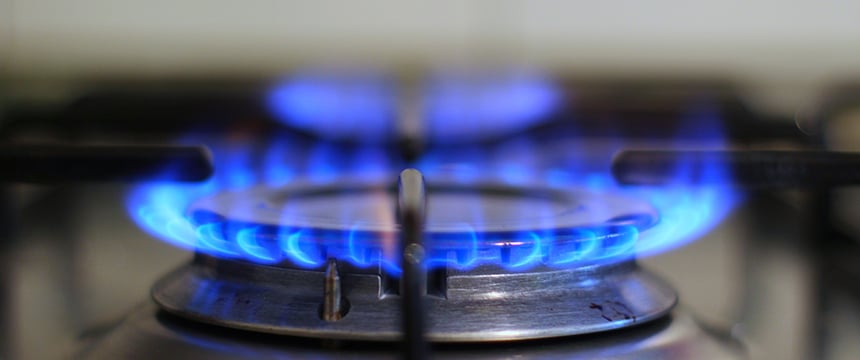
The Consumer Product Safety Commission (CPSC) appears to have moved its investigation into gas stove emissions off the back burner. After Commissioner Richard Trumka’s comments in early January that a gas stove ban was “on the table,” the CPSC fielded bipartisan backlash from both industry and government actors.1 Days later, CPSC Chair Alexander Hoehn-Saric confirmed that the Commission is “not looking to ban gas stoves” and that no procedure exists for the CPSC to do so,2 even taking to Twitter to “set the record straight.”3 Hoehn-Saric has since attempted to shift the focus to research and exploration into potential health risks involving gas stove emissions.4 He noted that the Commission would solicit the public for information about emissions, as well as solutions to mitigate potential risks, in the spring.5 The CPSC wasted no time, placing a notice on the Federal Register seeking public input on potential gas stove hazards and possible solutions (if necessary) at the end of February.6
On March 1, the Commission approved a Request for Information (RFI) on potential hazards of gas stove emissions.7 Commissioner Trumka noted in an accompanying statement that the RFI seeks to explore both problems and solutions “to provide consumers with the best available information to keep them and their families safe.”8 The Commission also publicized its approval of the RFI on Twitter, stating that it would announce the opening of the public comment period “soon.”9 The comment period opened on March 7, when the CPSC posted on Twitter that it was accepting comments on the RFI submitted through the Federal Register.10 Notably, the published RFI does not cover non-chemical hazards, including fire risks, “except as relevant to chemical hazard issues.”11 The RFI seeks information on three topics: (1) the “scope and scale” of chemical hazards; (2) data sources the CPSC should consider; and (3) proposed solutions related to “any chronic chemical hazards, exposures, and risks associated with gas range use.”12
The RFI asks “all stakeholders” to participate and the industry has already signaled its intent to do so. For example, the National Propane Gas Association published a notice indicating its intent to respond to the RFI because the “CPSC’s action likely indicates future agency action on gas ranges.”13 Although the RFI notes that it does not “constitute or propose regulatory action,” the expedition of the RFI to mere weeks after Commissioner Trumka’s comments appears to reflect the CPSC’s continued focus on potential hazards in the home.14
This focus on gas range emissions should be familiar to residents of California, where last year regulators approved a ban on the sale of all new natural gas-fired space heaters and water heaters by 2030.15 Starting in 2030, all new furnaces and water heaters sold in the state must be electric rather than gas-powered.16 Nationally, however, public and industry sentiment on changes to the status quo for gas stoves likely will remain highly contentious. If Commissioner Trumka’s expectation that the RFI will “set records for consumer and scientific participation” is correct, the industry can anticipate a proportional response from the Commission.17 Until then, the industry should participate in the RFI, keep an eye on public commentary, and work with counsel and consultants to prepare for the potential changes to gas stove regulations.
1 See Erik K. Swanholt & Kristin McGaver Sikora, What Is Going On With Gas Stoves? (Jan. 27, 2023), https://www.foley.com/en/insights/publications/2023/01/what-going-on-gas-stoves.
2 Statement of Chair Alexander Hoehn-Saric Regarding Gas Stoves, CPSC (Jan. 11, 2023), https://www.cpsc.gov/About-CPSC/Chairman/Alexander-Hoehn-Saric/Statement/Statement-of-Chair-Alexander-Hoehn-Saric-Regarding-Gas-Stoves.
3 @HoehnSaricCPSC, Twitter (Jan. 11, 2012 7:46 AM), https://twitter.com/HoehnSaricCPSC.
4 Id.
5 Id.
6 Ballot Vote Sheet, CPSC (Feb. 22, 2023), https://www.cpsc.gov/s3fs-public/DraftFederalRegisterNoticeRequestforinformationonchronichazardsassociatedwithgasrangesandproposedsolutions.pdf?VersionId=d4C1FoGDPbvgnheTXJ2lPnuH6BnmvNJU.
7 CPSC Approves Request for Information on Gas Stove Hazards and Potential Solutions, CPSC (Mar. 1, 2023), https://www.cpsc.gov/About-CPSC/Commissioner/Richard-Trumka/Statement/CPSC-Approves-Request-for-Information-on-Gas-Stove-Hazards-and-Potential-Solutions.
8 Id.
9 @USCPSC, Twitter (Mar. 1, 2023 1:15 PM & 1:16 PM), https://twitter.com/USCPSC.
10 @USCPSC, Twitter (Mar. 7, 2023 8:09 AM), https://twitter.com/USCPSC.
11 Request for Information on Chronic Hazards Associated With Gas Ranges and Proposed Solutions, 88 FR 14150 (Mar. 7, 2023).
12 Id.
13 NGPA to Respond to CPSC Request for Information, NGPA (Mar. 2, 2023), https://www.npga.org/news-resources/npga-to-respond-to-cpsc-request-for-information/.
14 See Erik Swanholt, Kristin McGaver Sikora, & Evan Hamling, CPSC Focuses on Child Safety in the Home (Jan. 23, 2023), https://www.foley.com/en/insights/publications/2023/01/cpsc-focuses-child-safety-home.
15 Angel Adegbesan, California moves to ban natural gas furnaces and heaters by 2030, Los Angeles Times (Sept. 23, 2023), https://www.latimes.com/business/story/2022-09-23/california-moves-to-ban-natural-gas-furnaces-and-heaters-by-2030.
16 Id.</em>; Ian Cull, California to Phase Out Gas-Fueled Furnaces, Water Heaters by 2030, NBC Bay Area (Sept. 24, 2022), https://www.nbcbayarea.com/news/california/california-gas-fueled-furnaces-water-heaters/3011600/.
17 CPSC Approves Request for Information on Gas Stove Hazards and Potential Solutions, CPSC (Mar. 1, 2023), https://www.cpsc.gov/About-CPSC/Commissioner/Richard-Trumka/Statement/CPSC-Approves-Request-for-Information-on-Gas-Stove-Hazards-and-Potential-Solutions.

